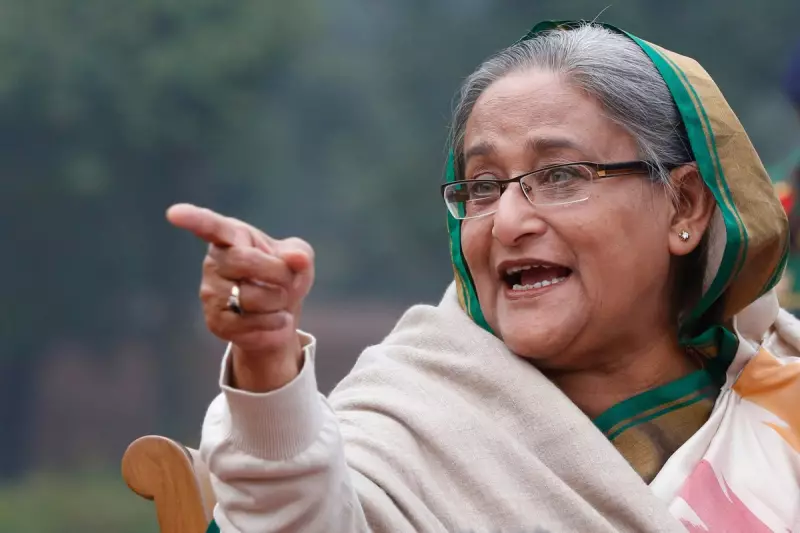
Bangladesh is experiencing significant nationwide disruption as the former ruling party calls for a lockdown in protest against the trial of ousted Prime Minister Sheikh Hasina. The country faces closed educational institutions and halted transportation amid escalating political tensions.
Nationwide Disruption Grips Bangladesh
Classes in schools and colleges across Bangladesh have been severely disrupted, with many institutions switching to online learning as transportation services ground to a halt. The widespread disruption follows calls from Sheikh Hasina and her former ruling Awami League party for a nationwide lockdown protesting her ongoing trial.
The special tribunal in Bangladesh's capital, Dhaka, was scheduled to announce a date for the verdict against Hasina, who faces serious charges of crimes against humanity. These allegations relate to her government's crackdown on student-led protests that ultimately ended her 15-year rule last year.
Security Tightens Amid Growing Unrest
Security measures have been significantly heightened across the country as the interim government responds to the growing unrest. Soldiers and security personnel have been deployed to guard the premises of the special tribunal, reflecting the tense atmosphere surrounding the case.
Over the past three days, Dhaka and other areas have witnessed disturbing incidents including explosions of crude bombs and vehicle arson attacks. On Wednesday evening alone, reports confirmed arson attacks on a train and bus in Dhaka, while crude bombs detonated earlier at Dhaka University campus.
The political situation remains volatile in a country with a long history of political violence. The now-banned Awami League continues to urge supporters to protest, while government forces and opposition groups vow to prevent further demonstrations.
International Dimensions and Leadership Response
Nobel Peace Prize laureate Muhammad Yunus, who leads Bangladesh's interim government, is scheduled to address the nation regarding the escalating situation. Yunus assumed leadership three days after Hasina's fall on August 5 last year and has consistently pledged to hold her accountable.
The trial has developed international dimensions, with Bangladesh's Ministry of Foreign Affairs summoning Indian Deputy High Commissioner Pawan Badhe to express concerns about India permitting "fugitive" Hasina to engage with mainstream Indian media. Several Indian outlets have recently published interviews with the former leader that have clearly irritated Bangladesh's current administration.
In these interviews, Hasina has accused Yunus of supporting Islamists and violating human and political rights, particularly targeting her supporters. The Yunus-led administration has responded by banning all activities of Hasina's party.
The case also involves former Home Minister Asaduzzaman Khan and former police chief Chowdhury Abdullah Al-Mamun, with Al-Mamun becoming a state witness against Hasina after pleading guilty. Both Hasina and Khan are being tried in absentia, with Hasina currently residing in exile in India.
The violence that led to Hasina's ousting resulted in significant casualties, with UN reports suggesting up to 1,400 fatalities while the interim government's health adviser cites more than 800 deaths and approximately 14,000 injuries. Hasina has disputed these figures and demanded an independent investigation.
With parliamentary elections scheduled for February, the political landscape remains deeply divided. Hasina's Awami League has launched campaigns against the election, primarily through social media channels, unless they are permitted to participate. The party has denounced the tribunal handling Hasina's charges as a "kangaroo court," and Hasina has refused to appoint legal representation while condemning the state-appointed lawyer.
The chief prosecutor, Tajul Islam, has sought the death penalty for Hasina, describing her as the "mastermind and principal architect" behind crimes against humanity committed during the uprising. As tensions continue to mount, Hasina has vowed to continue her fight, with her son telling the Associated Press that only inclusive elections can stabilise the nation.





